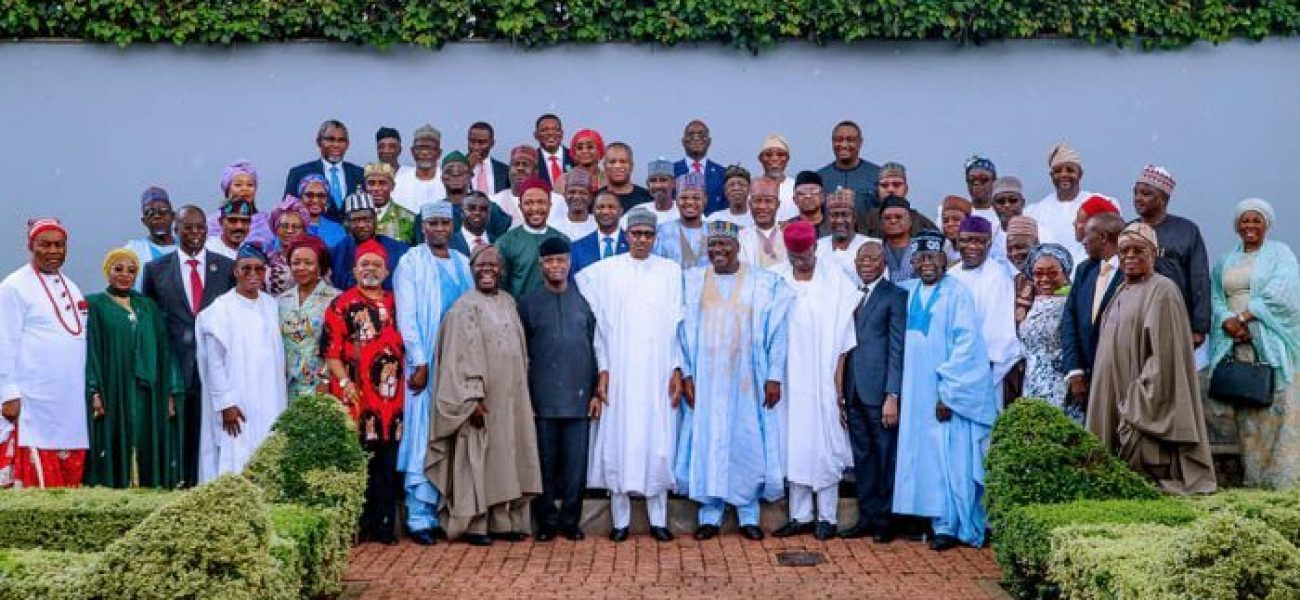President Muhammadu Buhari has sworn in and given portfolios to the 43 persons approved by Senate as Ministers-designate on 30th July 2019. Following the ceremony that took place at the Presidential Villa, Abuja on Wednesday, 21st August 2019, the Ministers will oversee various government Ministries and parastatals responsible for providing public services and work with career civil servants to implement the current administration’s agenda.
The 43 Ministers made up of 11 returnees and 32 new appointees (see list) is slightly more than the 36 cabinet list in 2015. The composition of the Ministers include 7 women (16.2%) which is slightly less than the figure in 2015 where 6 out of the 36 Ministers appointed were women (16.6%).
Other noteworthy observations from the 2019 Ministerial cabinet when compared to the 2015 appointments include the creation of new Ministerial positions such as Special Duty, Police Affairs and Humanitarian Affairs, Disaster Management and Social Development. Also, while the position of Minister of Finance has been subsumed with Budget and National Planning, the Ministry of Power has been separated from the Ministry of Power, Works and Housing as obtained in 2015 when the three Ministries were merged as one. There are also new Ministers of State on Power, Transportation, Science/Technology and the Federal Capital Territory, which did not exist in 2015”.
Under the 1999 Constitution (as amended), no person can be appointed as a Minister of the Government of the Federation unless he is qualified for election as a Member of the House of Representatives. This for instance, means that he/she is at least 25 years, a member of a political party and sponsored by that party and educated up to at least a Senior School Certificate level or equivalent among others. There are also geographical considerations that the President must satisfy in appointment such as the appointment of at least one Minister from each state who must be an indigene of such State.

